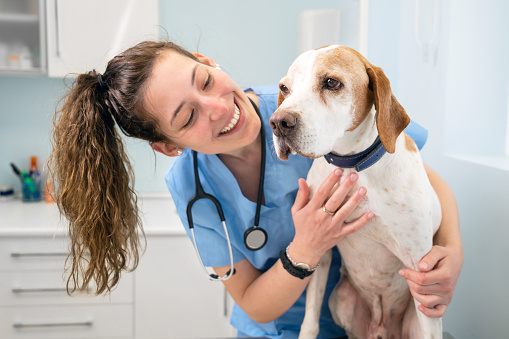The very idea of having your pet neutered may frighten many of you. Nevertheless, this practice is becoming commonplace for the comfort of the dog, cat or rabbit and its owner. Like spaying and neutering, spaying and neutering can be covered by an animal health insurance policy. Good to know! Spaying is the removal of the female’s ovaries. As for castration, it is characterized by the removal of the male’s testicles. In order to help you with your problem, discover the interests and implications of such an intervention.

The benefits of neutering on my pet’s health
It seems obvious that spaying a female dog means that you control her gestation and the number of litters during her life. You also control the blood loss related to heat. Thus, this process avoids many abandonments, euthanasia and even animal abuse. In addition, the risk of mammary cancer is greatly reduced.
In males, castration is strongly indicated in case of testicular tumor or prostate hypertrophy. It limits the proliferation of chronic age-related diseases, such as prostate inflammation, which is common in older dogs. It also minimizes the appearance of cysts, abscesses or hyperplasia, and significantly reduces urinary marking.
Castration effectively alters the animal’s behavior. This surgical operation can prevent the desire to run away or aggressiveness. Spaying definitely helps to extend the life expectancy of your pet.
Ask your veterinarian for advice on other alternatives to castration. For example, a hormonal implant to suppress testicular activity or a contraceptive implant for females. It’s up to you!
Finally, you should know that spaying or neutering is mandatory for “dangerous” first category dogs, as their reproduction is forbidden.
The stakes of spaying for my companion
After the clinical operation, it is inevitable that your dog or cat will gain weight. Hence the importance of a healthy diet adapted to your castrated animal. This specific food will allow him to better understand his weight gain and to stay in shape.
Rest assured… There will be no harmful consequences on the natural predispositions of the animal such as its attachment, its need for affection, its daily drive for walks, its guard instinct or its pleasant company. The idea that you are depriving your pet of a natural sexual activity and that it suffers from it, is to be banished. Since he will be deprived of sexual instincts, he will simply not feel the need for it.
On the day of the operation, you must bring your pet on an empty stomach, before the general anesthesia. Your veterinarian will proceed in several ways:
- He may make a single incision to remove the testicles;
- He will make a double incision in the case of testicular ectopy (missing testicles);
- He suggests a vasectomy (sterilization and preservation of sexual activity).
The convalescence of the animal is rapid, except for particular complications. After a few hours, you will find your pet wide awake with stitches. A maximum of two weeks is required for proper healing. Costs vary depending on the veterinary clinic. Ask for a quote before committing yourself.
You are the sole decision maker as the owner of your pet. You will be able to choose the best possible option with full knowledge of the facts. Your pet’s well-being depends on it, as well as your comfort. Ask your insurance company to cover the cost of the operation.






